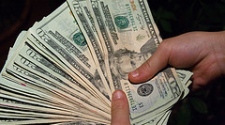Buying at an auction is a gamble. You’re taking a risk that the item you’re buying is authentic, that it is what the person or company selling it says it is. It doesn’t matter who is running the auction; whether it is a private auction, an online auction or a government auction of seized properties.
A reputable auctioneer or auction company should have no problem with verifying the authenticity of assets offered online. Here’s some suggestions on how to make sure that what you’re buying is the real deal:
1. Know the facts. Advertisements for auctions may give you the impression that they are sponsored by a reputable source, such as “Sheriff’s Office Seized Property Auction.” This would be a time to employ the “trust but verify” tactic. Contact the government agency or auction house to make sure the auction is legitimate. If the advertisement refers to the government in a very general way, be wary.
2. Know the reputation of the auctioneer. Ask around and find out what others think of the auctioneer behind the auction you’re looking to attend. Do some research on the Internet, looking for feedback from others about the auctioneer’s services or news articles about previous auctions sponsored by the auctioneer? You can also check with the Better Business Bureau and the Attorney General’s Consumer Protection Division in your state to find out if there are or have been any complaints against the auctioneer.

3. Know what you’re buying. Do some research to find out the current value of the items on which you’re thinking of bidding? Check with the auctioneer to find out if there will be any pre-bid inspections allowed. Ask for information on the quality of the items in which you’re interested. Don’t be afraid to ask if certificates of authenticity are available on high value items, such as jewelry or artworks. Remember that seized items are generally not “new, in the box.” These are mostly used items that may not have been treated entirely with care.
4. Shop around for the best price. Check with merchants in your area who carry the same or similar merchandise, especially if you’re thinking of buying at a seized property auction. Get an idea of current market value. You may actually be able to find the item at a lower price than you could get it at the auction.
5. Know the auction’s terms and conditions. At some auctions, you may be expected to pay entry fees and pre-bid deposits. There may be taxes attached. Some may want you to foot the bill for obtaining authentication of items, especially jewelry and artworks. If you’re expected to pay for authentication, ask for a copy of the certificate of authenticity. If that cannot be produced, think long and hard before bidding on the item.
6. Know standard authentication protocols in your state. Different types of merchandise have different methods of authentication. Know the routine for authentication that should be used with the type of merchandise you’re thinking of buying. For instance, professional league sports memorabilia are typically certified authentic by an internal body within the league. A handwriting expert would be needed for signed memorabilia.












